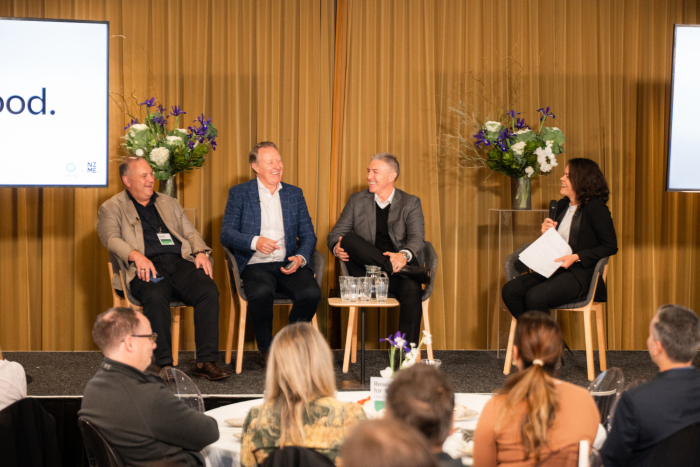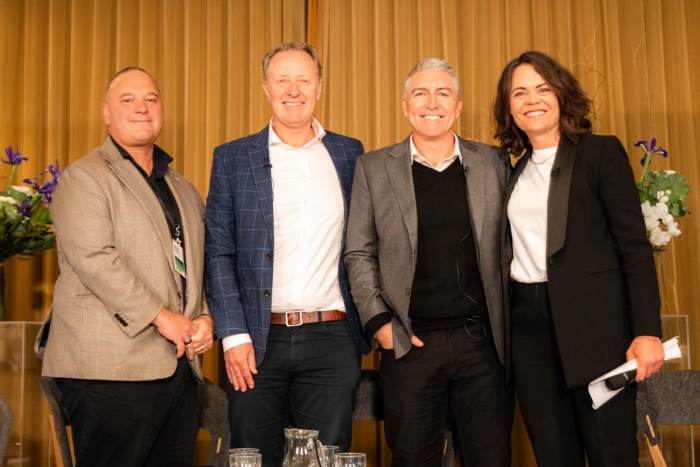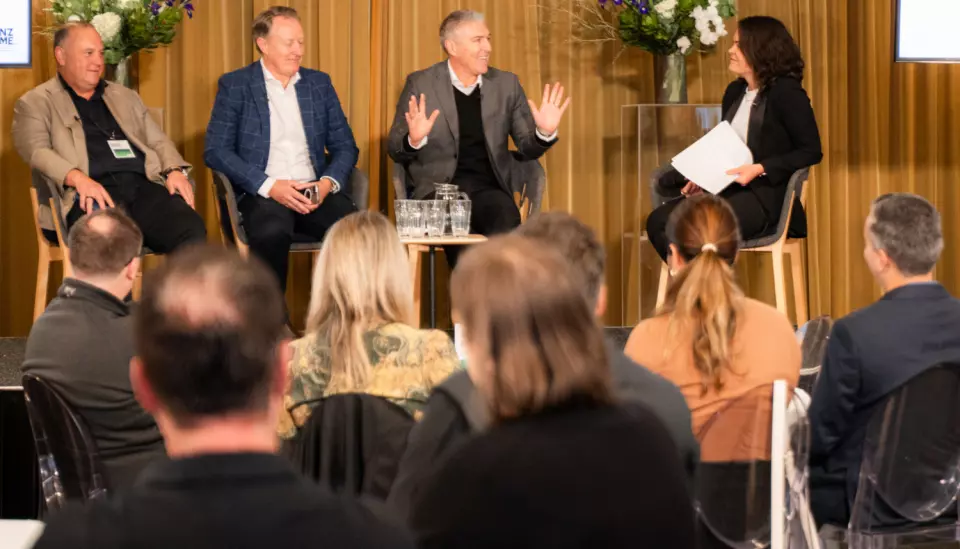Hard-hitting report warns uncertainty could block progress.
Artificial intelligence (AI) is rapidly reshaping how New Zealanders live and work, but a significant trust gap threatens to slow its transformative potential.
That’s the most important takeaway from the newly released One NZ AI Trust Report, which surveyed 1000 adults in a nationally representative study. While 77% of them have knowingly used AI-powered services from organisations in the past year, nearly half do not trust large companies to use AI ethically.
At a recent panel discussion held at NZME’s iHeart Lounge in Auckland to launch the report, business leaders explored what it will take to earn and sustain public trust in AI – and why getting it right is critical for the country’s future.
The trust gap: Concerns and opportunities
The One NZ AI Trust Report paints a nuanced picture: AI is now mainstream, but trust remains fragile. The top concerns for New Zealanders are the misuse of personal data (67%), job losses (65%), and unfair or incorrect decision-making (62%).

These anxieties are not unfounded, as AI’s reach extends into sensitive sectors like banking, healthcare, and government, areas where the public demands the strictest oversight and regulation.
One NZ’s Chief Executive Officer, Jason Paris, described the trust deficit in blunt terms: “People globally and in New Zealand don’t trust big corporates. So [for] AI, that’s an issue,” he said.
“If we don’t roll this out in a transparent way, with all the right trust guardrails in place, we’re going to miss the productivity gains AI is going to provide for New Zealand, because customers will reject it.”
The report’s findings reinforce this: 62% of respondents say they would stop using a company if they had concerns about its AI use, and 87% believe that strong data privacy protections are “important or essential”.
Building trust: Transparency, human oversight, and communication
Salesforce New Zealand Country Leader Hamish Miles agreed that trust in AI hinges on transparency and a human-centred approach as the new era of AI “agents” takes hold.
“We create AI,” he said. “I’m very conscious that we’re an AI manufacturer, but we also give organisations like One NZ the ability to deploy them in a safe and responsible way.”
Salesforce is working on developing AI agents with New Zealand customers like One NZ and Fisher & Paykel Appliances. Rather than simply receiving useful information from a chatbot, AI agents will soon be able to undertake actions on our behalf, changing the face of customer service in the process.
 But the ability to hand over to a human was central to Salesforce’s approach to developing AI agents.
But the ability to hand over to a human was central to Salesforce’s approach to developing AI agents.
Human oversight is non-negotiable for Kiwis. The vast majority of survey respondents say they would feel more comfortable using AI-powered services if they knew human intervention was available when needed.
The panel also highlighted the importance of learning from mistakes and being open about them as AI is increasingly deployed.
“Businesses are going to make some missteps,” said Paris. “Just make sure they are baby ones, not massive ones that break customers’ trust.”
Real-world results: Productivity and customer experience
Despite the concerns, the report and panel discussion pointed to tangible benefits when AI is deployed responsibly. One NZ’s own rollout of generative AI in its contact centres led to a 10% increase in customers reporting knowledgeable and friendly service, and a 10% rise in customer trust within three months.
“I think there will be a first mover advantage,” Miles said of those businesses that are early adopters of AI. “Those that embrace it and do it successfully will increase their market share. I’m absolutely certain about that.”
AI is also freeing up staff to focus on higher-value work, rather than repetitive tasks. The report supports this, noting that 43% of Kiwis see productivity gains as a key benefit of AI, alongside strengthening cyber security and accelerating innovation.
Sustainability and social impact
AI’s impact on sustainability is another emerging theme. While 48% of New Zealanders worry about the energy consumption of AI systems, many see potential for AI to reduce waste and improve resource efficiency.
Andrew Holmes, Chief Executive Officer of PwC New Zealand, said AI’s energy use will increase with technology adoption, but can be offset by efficiency gains across the economy.
“It will use energy, but it’s absolutely a catalyst for energy transition across the world. I think it’s a great platform for New Zealand, given our renewable [energy] base,” he said.
“We can set a high benchmark for the use of AI within organisations that other nations can look to.”
Act now, act ethically
The panel closed with a call to action: New Zealand has a unique opportunity to set a global benchmark for trustworthy, human-led AI. But the technology requires a proactive approach, given the competitive advantages it can offer.
“The only way to get going with AI is to get going. And so if you’re business casing it, you’re too late,” Paris concluded.
The One NZ AI Trust Report provides a roadmap: transparency, robust data protection, human oversight, and clear communication are essential. Businesses that lead on trust will be the ones Kiwis choose to engage with, work for, and give their business to.
Download the One NZ AI Trust Report.






